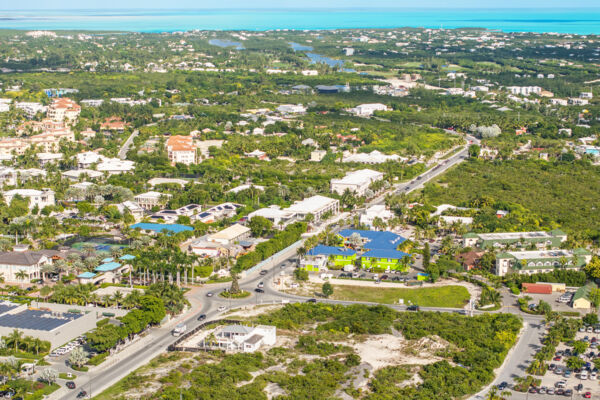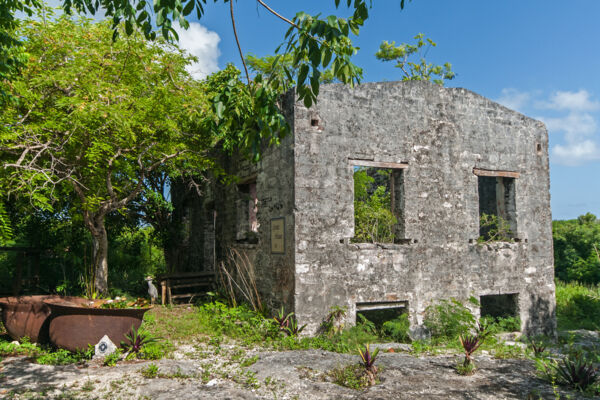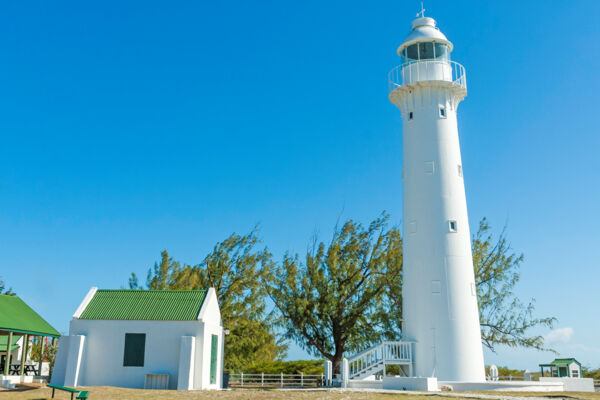Understanding Taxes in the Turks and Caicos

There is no income tax, capital gains tax, property tax, inheritance tax, or corporation tax in the Turks and Caicos Islands. For individuals, the direct forms of taxation are mandatory contributions to National Insurance (NI) and the National Health Insurance Plan (NHIP). Indirect taxation is primarily the 35% duty on most imported items. Both National Insurance (NI) and the National Health Insurance Plan (NHIP) are independent of general government revenue and are meant to be self-sustaining. However, NHIP has received several government interventions of funds to maintain the integrity of the scheme.
There is no general sales tax or VAT (apart from a 12% tax on tourism services), however, nearly all goods are imported and there is a 35% tariff on most goods.
Quick Summary of Direct Taxation
For an employee earning $5,000 per month, direct taxes would be $850 ($550 National Insurance and $300 Health Insurance). $450 of this would be payable by the employer, with the remainder payable by the employee.
For a self-employed person, direct taxation would be $583 ($250 Health Insurance and $333 National Insurance). This assumes an elected income at the highest rate of $3,700 per month. It is possible to self-elect the minimum monthly income of $1,300 (which would reduce future benefits). Every self-employed person also requires a business license, an annual fee that ranges from $150 to $7,500, depending on the type of occupation. For example, a taxi driver business license is $150 and a small architectural firm is $2,700. It is important to note that there are rate increases planned for 1 April 2024.
Both of these figures above exclude work permit fees for those without a right-to-work in the islands. These work permit fees range from $150 to $9,500 annually, depending on occupation.
Understanding how the Government is Funded
NI and NHIP are not included in the budget figures or percentages in the table below, as the schemes are separate entities with independent finances. Data is based on the 2023-2024 TCI Government Budget recurrent revenue of $396,862,046. Customs duties (tariffs) are the primary source of revenue for the government, at 30% of total revenue (this includes direct duties, and the ‘customs processing fee' tax). This is followed by the tourist-targeted Accommodation Tax, which accounts for 22% of revenue. Accommodation Tax is incurred on stays at Turks and Caicos hotels and villas.
| Government Revenue Sources | ||
| Source | Amount | Percentage |
| Stamp Duty on Land | $87,126,130 | 22.0% |
| Accommodation Tax | $86,265,073 | 21.7% |
| Customs Import Duties | $77,660,010 | 19.6% |
| Customs Processing Fee | $39,507,184 | 10.0% |
| Work Permits / Immigration Fees | $29,938,532 | 7.5% |
| Fuel Tax | $10,650,318 | 2.7% |
| Seaport Departure Tax | $9,950,128 | 2.5% |
| Gaming Department | $6,025,260 | 1.5% |
| Vehicle and Driver Licensing | $5,917,070 | 1.5% |
| Communications Tax | $5,649,623 | 1.4% |
| Telecom Licenses | $3,814,468 | 1.0% |
| All Other Revenue | $34,358,250 | 8.7% |
Direct Taxes

For individuals, the only forms of direct taxation are mandatory contributions to National Insurance (NI) and the National Health Insurance Plan (NHIP).
There are no direct taxes applicable to corporations, apart from license fees, permits, and similar fees.
National Insurance
Similar to Social Security in the United States, National Insurance (NI) is a social insurance program that provides death, disablement, injury, maternity, sickness, survivor, and retirement benefits to eligible contributors. In response to the COVID-19 pandemic, the scheme was updated to provide for unemployment insurance as well.
For employees, contributions are based on a person’s wages, including certain other benefits included with a job (such as housing allowance).
Self-employed people elect their level of contribution based on weekly wage bands, which range from $1,300 to $3,700 per month.
- Employees. 12%, of which 6.5% is payable by the employer and 5.5% is payable by the employee.
- Government Employees: 11.15%, of which 6.075% is payable by the Government and 5.075% is payable by the employee.
- Self-employed. 10%. Persons self-select a weekly income band of $325, $525, $725, or $925.
National Health Insurance Plan (NHIP)
The goal of the National Health Insurance Plan is ‘to facilitate the provision of accessible, affordable, and quality health care services to all its beneficiaries as specified in this Ordinance’ (National Health Insurance Ordinance 2014).
Many people maintain private health insurance, in addition to mandatory contributions and enrollment in NHIP. This is due in part to the perception of inadequate care by some persons (as reported in local newspapers). In addition, decisions to refer a patient overseas is not purely a medical one, but is also based on financial considerations. Patients are not generally referred to the United States, but instead to regional Caribbean countries. The NHIP website mentions this as one of the reasons why an individual might choose to retain private health insurance.
- Employed persons. 6% of earnings, up to $7,800/month (maximum contribution of $468/month). Split equally between employer and employee.
- Self-employed persons. $250 per month (can be reduced if person can provide proof of income under $3000/month).
- Dependent, unemployed spouse. $25/month.
- Dependent child. $10/month.
Indirect Taxes
Customs Duties
Most items imported into the Turks and Caicos have a 30% duty, with an additional 5% Customs Processing Fee (CPF).
Food generally has a 0% duty, and building materials are generally 10%. However, both of these items still incur the 5% Customs Processing Fee.
There are many unusual exceptions for individual items. For example, soft drinks incur a 30% duty rate, whereas drinking water (including mineral water) incurs a 40% duty rate (35% and 45% duty inclusive of CPF).

Fuel Tax
Gasoline is taxed at $0.44/gallon, diesel at $0.11/gallon, and kerosene at $0.09/gallon.
Stamp Duty on Land Transfers
Stamp duty is payable on transfers of land, at a rate of 0-10% depending on sale value. Exemptions are made for transfers to parents and children. In order for transfers to siblings to be exempt, the Permanent Secretary of Finance must certify that the gift is not for valuable consideration.
Work Permits
The fees for work permits range from $150 for a farmer, to $350 for a conch peeler, to $9,500 for a company director. Most occupations fall into the $2,000 to $3,500 fee range, which includes dive masters, foremen, mechanics, pilots, medical nurses, masseuses, and similar occupations.
Alcohol Excise Duties
Excise duties are levied on all alcohol imported into the islands. This differs from most customs duties (where a percentage of cost is used) in that there are flat rates per type of alcohol. On top of the taxes below, is an additional 5% customs processing fee.
| Taxes by Alcohol Type | ||
| Item | Amount | Tax |
| Imported Beer | 12 oz (350 ml) | $1.36 |
| Wine | Bottle (750 ml) | $5.15 |
| Rum, Whisky, Gin | Bottle (750 ml) | $10.10 |
Telecommunications Tax
A 12% government tax is payable on telecommunication services, including internet, fixed-line telephone, mobile, and television services.
Telecom Licenses
Telecommunication companies such as Digicel and Flow pay $3,814,468 annually for operating licenses (2023). This is essentially a $7.13 per month tax for every single person in the Turks and Caicos (based on 2020 population estimate).
Turks and Caicos Government Salaries and Wages
The following non-exhaustive list provides a general idea of local Government salaries and wages. This is based on 2024 data, and it should be noted that some similarly-title positions have variances within different departments and agencies.
| Government Salaries | |
| Position | Salary |
| Attorney General | $202,354 |
| Chief Justice | $202,354 |
| Premier | $195,000 |
| Deputy Governor | $178,852 |
| Police Commissioner | $162,031 |
| Governor | $159,900 |
| Minister | $157,950 |
| Supreme Court Justice | $147,398 |
| Permanent Secretary | $146,792 |
| Director (varies) | $106,486 |
| Member/Representative | $97,500 |
| Deputy Director (varies) | $87,398 |
| Communications Coordinator | $54,670 |
| Administrative Officer | $40,650 |
| Administrative Assistant | $38,691 |
| Clerical Assistant | $27,383 |
| Porter | $20,125 |
| Maid | $19,541 |
Lawyers and Consultants


